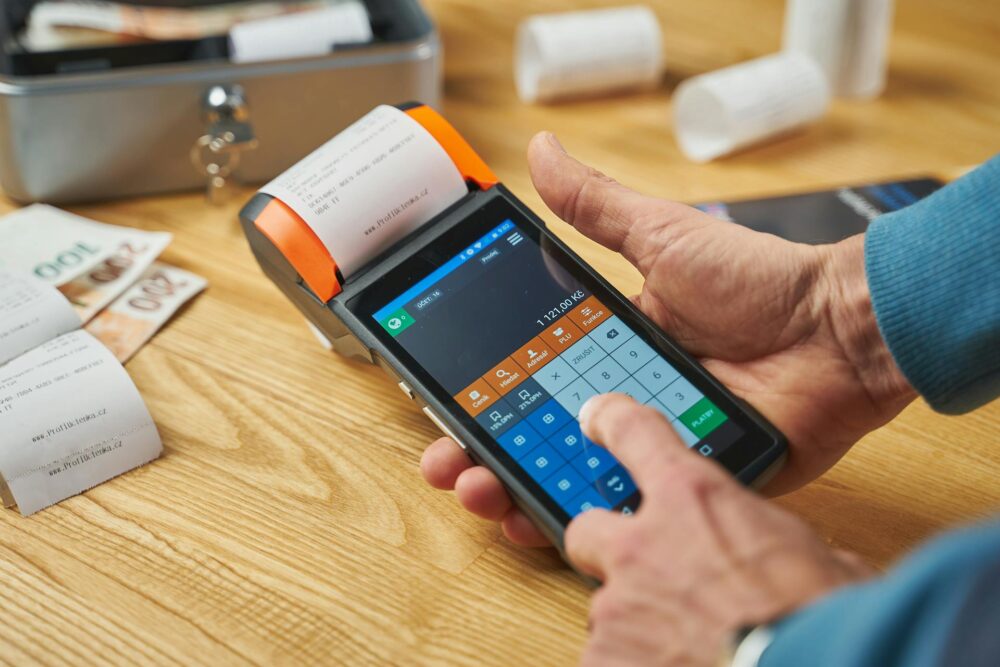If you’re new to payment processing as a merchant, you might be wondering – what does dispute transaction mean? In the world of credit card payments, disputes are an unavoidable part of doing business. A disputed transaction happens when a customer questions a charge on their credit card statement, prompting the payment processor or card issuer to investigate. For merchants, it’s extremely important to understand the meaning of it and to know how to handle it properly.
What Does Dispute Transaction Mean?
Let’s start by explaining what does it mean to dispute a transaction? A dispute transaction occurs when a customer challenges a charge on their credit card, claiming that the payment is incorrect, unauthorized, or does not meet their expectations. When a transaction is disputed, the card issuer steps in to investigate the claim, which may result in a chargeback if the dispute is found to be valid. This process can lead to the funds being returned to the customer, often at the expense of the merchant.
Common Reasons for Disputes
For merchants, disputes can be a frustrating and time-consuming challenge. While some of them are unavoidable, if you know all about them in-depth, it can help reduce the number of times they happen. Disputes can arise for several reasons, including the following:
- The customer believes the transaction was made without their consent, potentially due to credit card fraud or perhaps even identity theft.
- The customer claims that the product or service received was not as described, defective, or unsatisfactory in some other way.
- Mistakes such as duplicate charges, incorrect amounts, or unrecognized charges appearing on the customer’s statement can lead to disputes.
- The customer did not receive the product or service they paid for, or it arrived significantly later than expected.
- Subscription or recurring payments that continue after a cancellation can also trigger disputes.

The Dispute Process Explained
The dispute process begins when a customer contacts their credit card issuer to contest a charge. The issuer then reviews the complaint and decides whether to initiate a formal dispute. If the issuer finds the claim credible, they will notify the payment processor and the merchant, potentially leading to a chargeback. Throughout this process, merchants have the opportunity to respond and provide evidence to challenge the dispute. There are several key steps involved.
Customer Complaint
The process starts when a customer notices a charge on their credit card statement that they want to contest. This could be due to a billing error, dissatisfaction with a purchase, or suspicion of fraud.
Initial Review by the Issuer
The card issuer assesses the customer’s claim to determine if it warrants further investigation. If they decide the dispute is valid, they notify the credit card processing company and issue a chargeback, temporarily reversing the transaction.
Merchant Notification and Response
The merchant receives a notification about the dispute, including details of the claim and a request for supporting evidence. The merchant can respond by providing documentation, such as receipts, delivery confirmations, or communication with the customer, to refute the claim.
Chargeback Decision
After reviewing the evidence submitted by the merchant, the card issuer makes a final decision. If the dispute is resolved in the customer’s favor, the chargeback is upheld, and the funds are permanently returned to the customer. If the merchant’s evidence is deemed sufficient, the chargeback may be reversed, allowing the merchant to keep the funds.
Representment and Arbitration
This is optional – if the merchant disagrees with the chargeback decision, they can opt for representment, which involves resubmitting evidence to challenge the chargeback. If a resolution still isn’t reached, the dispute may proceed to arbitration, where the payment network (for instance, Visa or Mastercard) makes a final, binding decision.
Key Terms Explanation
Knowing what does “dispute this transaction” mean and key terms can help merchants handle disagreements better and maybe even get back the money they lost. Here’s an explanation of each term in the table below.
| Key Term | Definition |
|---|---|
| Chargeback | The process by which a disputed transaction is reversed and the funds are returned to the customer. This often involves fees and can affect the merchant's chargeback ratio. |
| Representment | When a merchant challenges a chargeback by submitting additional evidence to prove the validity of the original transaction. |
| Arbitration | The final stage of the dispute process, where a payment network steps in to make a binding decision if the dispute remains unresolved after representment. |
How Dispute Transactions Affect Merchants
Merchants can be greatly affected by disputed deals, which can have an effect on both their finances and the way their business runs. There are more things that can go wrong with a dispute than just the possible loss of money. Processing fees, account status, and even the company’s image can be affected.
Potential Financial Implications
When a chargeback is made, there is a fee that the merchant has to pay, no matter what the result of the dispute is. These fees are different for different credit card processing companies and situations, but they can add up quickly for businesses that have a lot of complaints.
Besides these fees, there is also the matter of money that was not made. The money is taken out of the merchant’s account and held until the problem is fixed when a transaction is contested. If the customer wins the dispute, that money will never come back, and that includes any goods or services that have already been given. Furthermore, managing disputes can be expensive, since it often takes time and money to gather evidence, react to claims, and find your way through the whole process.
Impact on Merchant Accounts
When a merchant has a lot of disputes, it can be very hard for them to complete payments. Payment processors may see sellers who get a lot of chargebacks as high-risk, which makes account termination more likely.
If a business can’t handle payments, it can seriously hurt its operations and be hard to get back on its feet financially. Some payment processors charge higher transaction fees or make merchants keep a reserve fund if their chargeback rates go over certain limits. This is done to lower the risk. These increased costs can strain the business further, especially if disputes continue to be an issue.
Reputation and Long-Term Business Impact
High dispute rates may also harm the business’s reputation in the eyes of banks and payment processors. A frequent number of disputes can be seen as a red flag, suggesting potential problems with customer satisfaction or vulnerability to fraud. As a result, merchants may face stricter monitoring or penalties, further complicating their ability to maintain smooth payment processing.

Steps Merchants Can Take to Prevent Disputes
To avoid disputes, you need to be strategic and focus on good customer service, clear communication, and reliable transaction processes. If businesses deal with common dispute causes before they happen, they can lower the risk of chargebacks and protect their bottom line.
Clear Communication and Accurate Descriptions
One of the most effective ways to prevent disputes is to ensure that customers fully understand what they are purchasing. The first step is to describe goods or services in clear, accurate, and detailed phrasing.
When merchants post something on their website or sales platform, they should include high-quality pictures, detailed descriptions, and any terms and conditions that apply. Being clear with customers about return policies, shipping times, and any extra fees can also help manage their expectations and stop misunderstandings that could lead to conflicts.
Providing Excellent Customer Service
Having great customer service is another important way to avoid disputes. Merchants should make it a priority to answer customer questions or complaints quickly and helpfully so that problems can be solved before they become official disputes.
Customers are more likely to contact you for help instead of challenging a charge if your contact information is easy to find and you offer multiple ways to talk to you, like email, phone, and live chat. Making sure the return process is easy and friendly can also help keep customers happy, which could help avoid arguments over refunds or returns.
Using Tracking for Shipped Items
When a business ships goods, it can be very important to use reliable tracking services and get confirmations of delivery. Giving customers tracking numbers and updates on the state of their shipments lets them keep an eye on the progress of their ordered items, which makes them less worried about not getting them. When claims of undeliverable things lead to disputes, having proof of delivery can help the merchant effectively challenge the dispute and settle the matter in their favor.

Best Practices for Merchants to Handle a Dispute
If and when a dispute actually happens (and unfortunately it will, whether you run an e-commerce business or a brick-and-mortar store) merchants should take strategic steps. This will improve the chances of a good outcome. To do this, you need to gather strong proof, act quickly, and talk clearly with everyone involved. Here are some of the best ways to handle disagreements with customers:
- Merchants should collect relevant documentation such as receipts, order confirmations, signed agreements, and email correspondence with the customer. For shipped products, tracking information and delivery confirmations can be crucial. The more detailed and relevant the evidence, the stronger the case will be to challenge the dispute.
- Payment processors typically provide a limited time to respond. Missing this deadline can result in an automatic chargeback. Merchants should immediately gather the necessary evidence and submit their response within the allowed timeframe.
- Open and clear communication with the payment processor that provides merchant services and credit card processing is critical throughout the dispute process. Merchants should provide all requested information promptly and follow the guidelines for submitting evidence.
If they handle everything the right way, merchants can successfully defend themselves against disputes, protect their income, and keep good relationships with both customers and processors.

Dispute Resolution Options for Merchants
When dealing with disputes, merchants need to know what choices they have for solving the problem properly. Firstly, you will need to know how to present evidence. This means you will need to gather all relevant documentation – such as receipts, customer communication, and shipping details – and submit it promptly to the payment processor.
However, keep in mind that not all disputes are worth contesting. If the evidence is weak or the cost of fighting exceeds the disputed amount, it might be better to accept the chargeback. And vice versa – if strong evidence supports the transaction, challenging it can help recover the funds.
If the dispute isn’t resolved after submitting evidence (representment), arbitration may be the next step. Here, a payment network reviews the case and makes a final, binding decision. Arbitration fees can be costly, so think about the potential benefits carefully.

It’s Important to Invest in Good Credit Card Processing Services
Taking proactive steps like giving clear product descriptions, providing great customer service, and using tracking for shipped things can greatly reduce the chances of disputes happening in the first place. For tailored advice or solutions, consult with Merchant Chimp. Our team can help you navigate the dispute process and implement strategies to prevent disputes from impacting your business.








